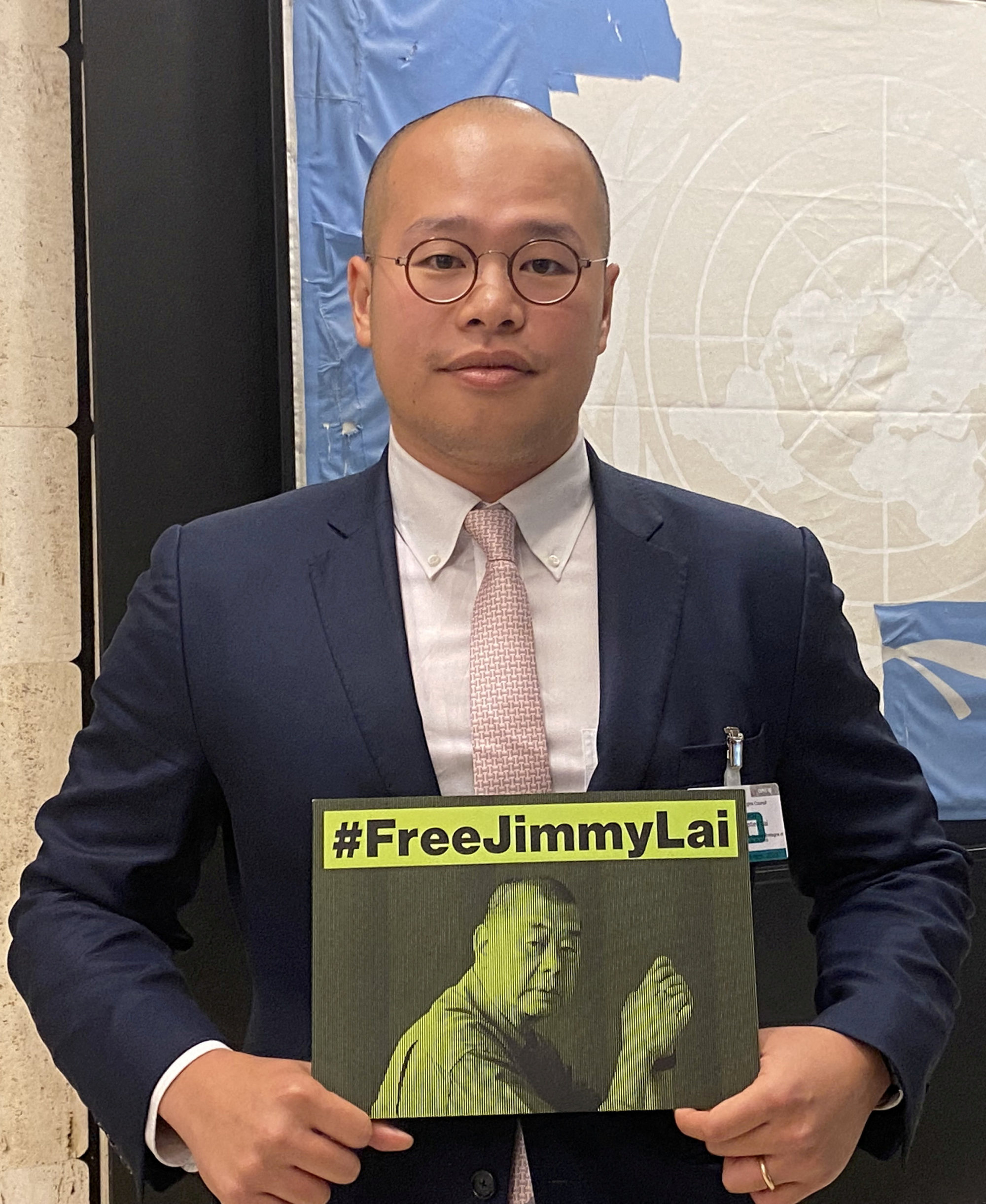
UK demands consular access to Jimmy Lai as West assails Hong Kong publisher’s trial
- China has targeted Lai ‘in a clear attempt to stop the peaceful exercise of his rights to freedom of expression and association’, says David Cameron
- In London, the government insists that Lai is a British citizen as he faces national security charges that could imprison him for life
The British government has demanded consular access to Hong Kong media tycoon Jimmy Lai Chee-ying, reiterating that he is a citizen of the United Kingdom, amid a landmark national security trial.
“We have absolutely done everything, and we continue to ask for consular access for Jimmy Lai … we are very comfortable and certain that he is indeed a British citizen,” said Minister of State for Indo-Pacific Anne-Marie Trevelyan during a parliamentary debate in London on Monday.
The debate was sparked by the commencement of Lai’s trial, which has drawn widespread media attention across the world. Lai, the 76-year-old founder of shuttered tabloid Apple Daily, is fighting collusion charges that could result in him spending the rest of his life behind bars.
He faces three charges relating to sedition and collusion with foreign forces for allegedly drawing international sanctions against authorities and inciting public hatred in the wake of anti-government protests in 2019.
Numerous Western governments called on Monday for Lai’s immediate release, while observers from at least 10 consulates – including the United States, United Kingdom, Australia, Canada, New Zealand and Switzerland – were present in court.
Responding to questions from lawmakers, Trevelyan said she was “able to help him get a new passport earlier in the year because his old one had run out; we worked with the Home Office to ensure that”.
However, she said the British government has been frustrated by Hong Kong authorities failure to recognise Lai’s British citizenship.
“We will continue to press for consular access to Mr Lai, which the Hong Kong prison authorities have repeatedly refused. China considers anyone of Chinese heritage born in China to be a Chinese national. It does not recognise other nationalities and therefore considers Mr Lai to be exclusively Chinese,” said Trevelyan.
Legal team for Hong Kong tycoon Jimmy Lai argues time’s up for sedition charge
She called out “shocking attempts to dissuade, make fearful and stop Jimmy Lai’s legal teams here in the UK”, amid claims of cyber harassment from Beijing. However, Trevelyan declined to say whether the British government would issue new sanctions against Hong Kong officials over the trial.
“I listen very closely, as do all of us here and our officials in the Foreign Office, on all issues related to potential future sanctions,” she added.
“We continue to look at those under the global human rights sanctions regulations in this arena, but we do not speculate about future sanctions designations because of course that could reduce their impact.”
On Sunday, British Foreign Secretary David Cameron made the highest-profile intervention to date on the eve of the trial, saying he was “particularly concerned at the politically motivated prosecution of British national Jimmy Lai”.
“As a prominent and outspoken journalist and publisher, Jimmy Lai has been targeted in a clear attempt to stop the peaceful exercise of his rights to freedom of expression and association,” said Cameron, who met Lai’s son Sebastien last week.

Security Minister Tom Tugendhat – an outspoken critic of the Chinese Communist Party – took to X, formerly Twitter, to decry Lai’s prosecution as “another nail in the coffin of Hong Kong’s global reputation”.
On Monday, Tugendhat pointedly reposted a tweet by exiled activist Frances Hui Wing-ting, on whom the Hong Kong government announced a HK$1 million (US$128,000) bounty last week, along with five other opposition figures accused of violating the national security law.
Earlier in the day, the European Union weighed in, saying the bloc “deplored the charges against the tycoon and would monitor the trial closely”.
“The trial brought against him undermines confidence in the rule of law in Hong Kong and is detrimental to the city’s attractiveness and its position as an international business hub,” said Peter Stano, a spokesman for top EU diplomat Josep Borrell.
Hong Kong court hears sedition charge against Lai should be dismissed over time bar
The United States and Canada have also criticised the trial. Last week, Canada’s Senate and House of Commons passed identical motions, through unanimous consent, calling on Hong Kong’s authorities to release Lai and halt prosecution of the cases against him.
In the House, Liberal MP Judy Sgro, who represents an area of suburban Toronto, introduced the motion with support from Pierre Poilievre, the leader of Canada’s Conservative Party, as well as from members of the New Democrats and Bloc Québécois.
In Beijing, Ministry of Foreign Affairs spokesman Wang Wenbin rejected the criticism and defended the hearing, accusing the United States and Britain of “gossiping” and “politically manipulating” the trial.
Beijing’s office in Hong Kong said: “The United States and the West put the rule of law on their lips, but use Jimmy Lai’s case to destroy Hong Kong’s rule of law and judicial independence, providing ‘support’ to suspects without caring for right and wrong.”
Additional reporting by Robert Delaney

